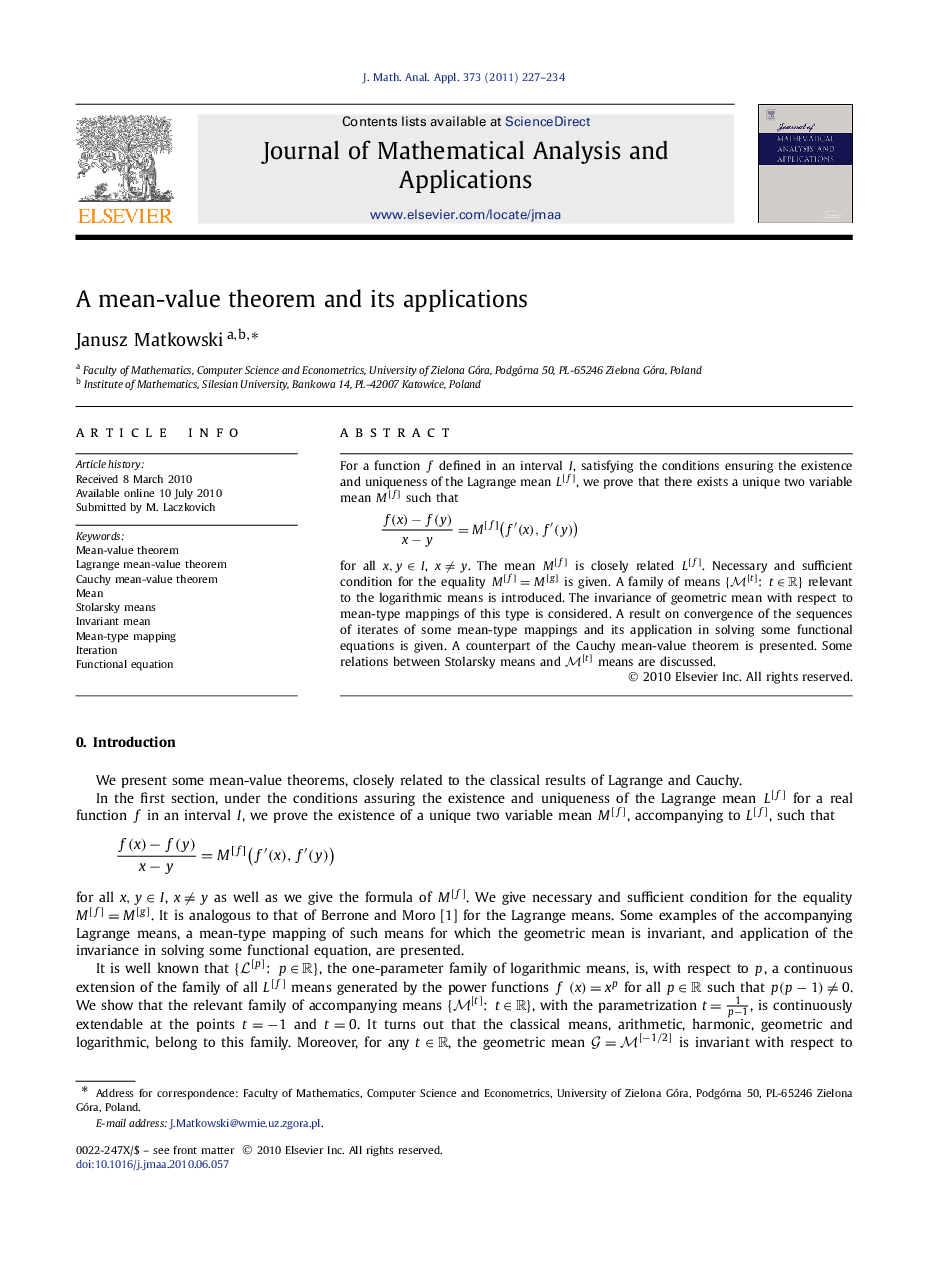| Article ID | Journal | Published Year | Pages | File Type |
|---|---|---|---|---|
| 4618868 | Journal of Mathematical Analysis and Applications | 2011 | 8 Pages |
For a function f defined in an interval I , satisfying the conditions ensuring the existence and uniqueness of the Lagrange mean L[f]L[f], we prove that there exists a unique two variable mean M[f]M[f] such thatf(x)−f(y)x−y=M[f](f′(x),f′(y)) for all x,y∈Ix,y∈I, x≠yx≠y. The mean M[f]M[f] is closely related L[f]L[f]. Necessary and sufficient condition for the equality M[f]=M[g]M[f]=M[g] is given. A family of means {M[t]:t∈R}{M[t]:t∈R} relevant to the logarithmic means is introduced. The invariance of geometric mean with respect to mean-type mappings of this type is considered. A result on convergence of the sequences of iterates of some mean-type mappings and its application in solving some functional equations is given. A counterpart of the Cauchy mean-value theorem is presented. Some relations between Stolarsky means and M[t]M[t] means are discussed.
